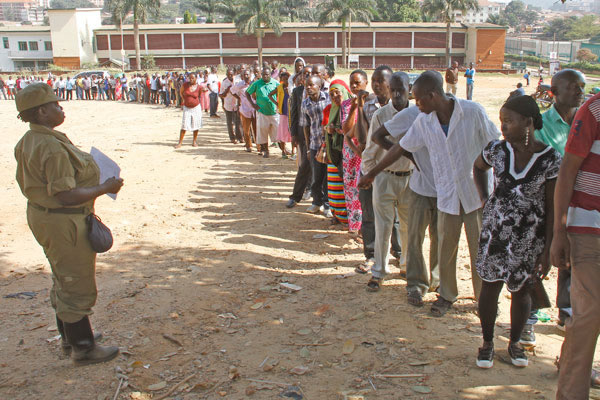Do Ugandans still believe in politicians’ campaign pledges?
During election campaigns, promises of better living standards are often at the forefront, but the reality post-election tends to fall short. Many people feel left behind, especially in urban centers like Kampala where economic disparities are more evident.

As the country approaches another election cycle, a familiar scene plays out across Kampala’s streets. Politicians are making grand promises, rallying citizens to believe in their vision for the country.
But after decades of similar cycles, the question that lingers in the air is whether Ugandans still believe in these promises.
In the heart of Kampala’s bustling Central Business District, opinions on campaign pledges vary. Joseph Muvawala, a boda-boda rider, pulls his helmet off and shakes his head when asked if he trusts politicians to keep their word.
“Every election, it’s the same promises—better roads, more jobs, lower taxes. But as soon as they win, we never hear from them again until the next election,” he says, pausing to sip on his soda. “I’ve learned not to expect much from them.”
Muvawala’s frustration mirrors the growing disillusionment many Ugandans feel about campaign promises. For many voters, especially those in urban areas, the shiny pledges of infrastructure projects, job creation, and improved social services seem distant compared to the everyday challenges they face. High unemployment, poor healthcare systems, and underdeveloped infrastructure remain significant issues.
“They promised us improved public transportation, yet the roads are still terrible,” says Florence Mutebi, a vendor in Nakasero Market. “Look at the traffic jams, look at how expensive everything is becoming. Where are the jobs they promised? People like me, who sell small things in the market, still struggle every day just to survive.”
Mutebe’s comments reflect the broader economic frustrations experienced by many Ugandans, especially those in informal employment sectors.
During election campaigns, promises of better living standards are often at the forefront, but the reality post-election tends to fall short. Many people feel left behind, especially in urban centers like Kampala where economic disparities are more evident.
Despite this skepticism, some Ugandans still hold on to hope. Moses Hakim, a university student, believes that there are genuine politicians who want to make a difference.
“I think it depends on who we elect,” he says. “Yes, many politicians have failed us, but we’ve also seen some leaders who’ve worked hard to improve things. The problem is we don’t hold them accountable enough.” Moses advocates for more civic engagement and pressure on elected officials to follow through on their promises.
His optimism, however, is tempered by the experiences of others like Sarah Nagawa, a tailor in Kiyembe.
“They promised to support small businesses, but we’re still paying high taxes, and there’s no one to help us grow,” she laments, adjusting the fabric on her sewing machine. “Politicians only care about their own pockets. Once they get into office, they forget the people who put them there.”
Sarah’s perspective sheds light on another common issue—the perception that corruption and self-interest overshadow political accountability. For many Ugandans, election campaigns are seen as performances rather than sincere efforts to address the needs of the population.
To get a broader perspective, Dr. Julius Kiggundu, a political analyst explains why Ugandans are often disappointed by the gap between campaign promises and reality.
“There’s a deep-seated problem of institutional weaknesses in Uganda’s political system,” he says. “Politicians make promises to win votes, but once in office, they often lack the resources, political will, or commitment to deliver. Many end up serving their own interests or focusing on short-term gains rather than long-term development goals.”
Dr. Kiggundu also points out that voters themselves bear some responsibility. “The electorate must demand accountability,” he emphasizes. “We often see a lot of excitement around campaigns, but once the elections are over, there’s minimal follow-up. Citizens need to stay engaged, monitor their leaders, and call them out when they fail to deliver.”
In the streets of Kampala, these sentiments are echoed. Simon Kitimbo, a shop owner in Kikuubo, feels that Ugandans need to be more proactive in holding their leaders accountable.
“We can’t just complain every election cycle. We have to ask ourselves: What are we doing about it? If we don’t push for change, nothing will change,” he says, his voice tinged with frustration but also determination.
As the next election cycle looms, the gap between political rhetoric and reality remains a significant issue for Ugandans. While many have grown weary of unfulfilled promises, there is also a growing sense that it’s time for citizens to take matters into their own hands—whether by demanding accountability, engaging in political discourse, or choosing leaders based on action rather than empty words.







